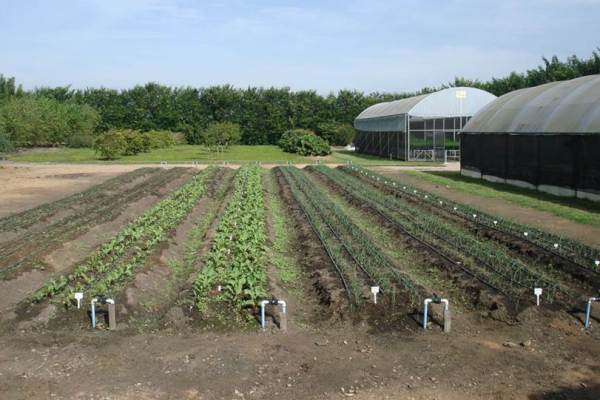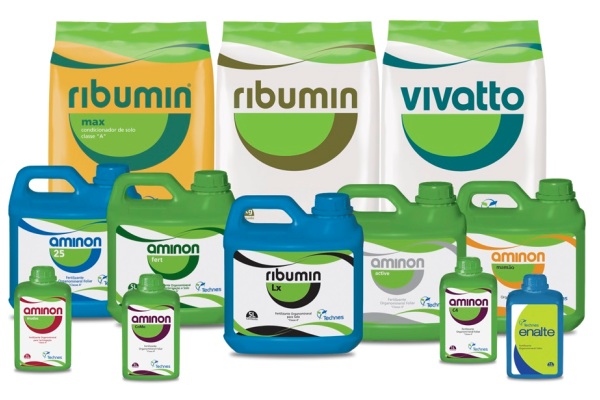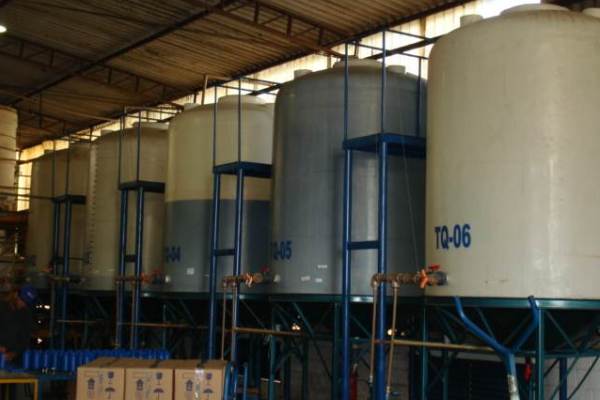Technes Agrícola: Organic Mineral Fertilisers and Soil Conditioners
Edson Kenji Tsuzuki, Director of Technes Agrícola
Edson Tsuzuki talks about the mineral fertilisers and soil and sub-soil conditioners segment in Brazil and gives an overview of his company, Technes Agrícola, mentioning its history, philosophy, success cases, growth strategy and challenges to be faced. Mr Tsuzuki also shares his vision for the future of the sector and Technes.
Interview with Edson Kenji Tsuzuki, Director of Technes Agrícola
Technes Agrícola operates in the niche market of organic mineral fertilisers and soil and sub-soil conditioners. Could you give us your overview of the sector here in Brazil?
This sector is experiencing good growth here in Brazil, particularly the organic-mineral fertiliser segment, due to the increased value of mineral fertilisers.
Brazilian producers are trying to reduce costs. This mixture of organic material with mineral fertiliser means that you can increase agricultural efficiency. With less mineral content, you can achieve the same results at the same or even at a lower price. The soil conditioner sector is also improving with the benefits from these minerals.
The company philosophy and slogan is “technology in harmony with nature”. We recommend the least use of chemical products possible. We prefer to use products that are natural or organic waste materials from other industries that can be re-used in the agricultural sector.
The substrate segment of this sector relates to the recycling of organic material. The concept is sustainability and taking advantage of materials that have been overlooked in other segments of agro-industry by giving them an application in the horticulture and forestry sector.
Can you tell us a bit more about Technes?
Technes was founded in 1987 by my father Mr Yoshio Tsuzuki who has a very interesting background. He is a Japanese immigrant who came to Brazil in 1948 after World War II. He came to this country like all immigrants, to start a new life. He came here as a farmer and worked in the Cotia Agricultural Cooperative. After working in that cooperative he began working for Bayer, a multinational company working with agro-chemicals. He was a very successful agro-chemical salesperson in that company. At that time, agro-chemicals were the only way to increase productivity of agriculture. As time went by, he noticed that it was increasingly difficult to control pests and blights with these chemicals. He reached a point where he decided to study organic agriculture and sustainable farming. From then on, his life changed completely. He abandoned his work with agro-chemicals and began to work with organic mineral fertilisers and soil conditioners, products that were already being used in Japan.

From then on, we have been developing these products and this niche market here in Brazil. This company is still a family run business. We are a small company; our turnover is approximately 7 million dollars a year. We have been growing continuously since we began. On average, from start-up until 2006 we experienced annual growth of 20%. From then on, we have experienced slightly less growth, although it has still been about 10 to 12% annually. The company has approximately 50 employees. We have a production plant located in Cabreuva and we are investing in opening another plant in Guatapará close to Riberão Preto.
Can you tell us a bit about Technes’ philosophy?
The company philosophy and slogan is “technology in harmony with nature”. We recommend the least use of chemical products possible. We prefer to use products that are natural or organic waste materials from other industries that can be re-used in the agricultural sector.
What are some of the company´s success cases?
Yoshida & Hirata is a very important client of ours. They are a company located in Mogi das Cruzes, a region in the greater Sao Paulo state, within the green belt. They are also seeking sustainability, not only for their company but also for all of the producers and the region as a whole.
Can you tell us a bit about your growth strategy? We know that you export your products; 10% of your turnover comes from exports to Japan and Uruguay.

That´s correct. At the moment, I am more concerned about developing the local market than the international market. Our market share in Brazil is still very small. There is a lot of potential for expansion. Following the investments over the past few years in this sector, principally in raw materials, we want to begin by organising ourselves here in Brazil, to build up a strong base in this market before we look at expanding internationally.
What are the main challenges that your company has to face on a daily basis?
To carry out our expansion plans we need to find funding, whether from the banks or the BNDES. We need resources for construction and equipment. This is a relatively big challenge because although we are a longstanding business with 27 years on the market it is still difficult to get funding for this expansion.
Would you be interested in considering investors or a kind of partnership to help with these expansion plans?
Yes. We would be interested in such possibilities.
What kind of partnership would you be interested in?
We haven´t considered the options just yet. We have been focusing on funding from the development banks mainly because of the lower interest rates that they offer. Yet, due to the small size of our company, we don’t have direct access to the BNDES. We are obliged to go through transfer agents who always seem to place some kind of difficulty in obtaining this funding from the BNDES. It has been very complicated for us.

Another challenging issue is the bureaucracy here in Brazil. The legislation here is not easy to understand. Fiscal issues are also very complex even though our company has a very good management system. It is difficult to comply with 100% of the requisites and legislations here. They always find some kind of error even if you try your hardest to comply 100% with the regulations. This is not specific to this sector; legislation here is complicated in all areas.
How do you see the sector in 5 years´ time? Do you expect to see any significant changes?
In the sector of organic mineral fertilisers and soil conditioners, the majority of companies are small sized businesses. Therefore, the market is very fragmented. I think we are looking at a future consolidation of the market. I think the number of companies will reduce and so the size of the remaining companies will increase. There is still some informality in this sector; there are some unregistered companies but that is a matter of implementing stricter controls.
There are still a lot of opportunities for expansion in this sector, not only because of economic factors but also because of changes in attitudes regarding environmental issues. I think that the new trend in the agricultural business is a move towards sustainability. I think that everyone is looking for a better use of resources, I don´t think that we will necessarily reduce our consumption but perhaps we can find a more rational way of using them. There are technologies available to improve resource management; the trouble is that they are not being used a great deal yet here. I personally think that we as human beings need to adopt these new technologies.
Where would you like to see the company in 2 or 3 years´ time?

In two or three years’ time, I hope to see the new factory up and running and as a result, I would like to see growth figures of 20 to 25% per year for the next 10 years.
What advice would you give to any investors thinking of coming to do business here in Brazil in your sector?
I would say that it is very important to get a local partner who understands the regulations here in Brazil. I would say that it is also very important to be patient. Before you jump in, you must find a local partner and carefully analyse the situation in Brazil. You may hear some fantastic figures but they don´t necessarily represent the entire situation. I think it is important to move slowly, to get to know the situation here and then you can begin a more aggressive expansion. I do think doing business here in Brazil is full of challenges and it isn’t for everyone.
FAIR USE POLICY
This material (including media content) may not be published, broadcasted, rewritten, or redistributed. However, linking directly to the page (including the source, i.e. Marcopolis.net) is permitted and encouraged.